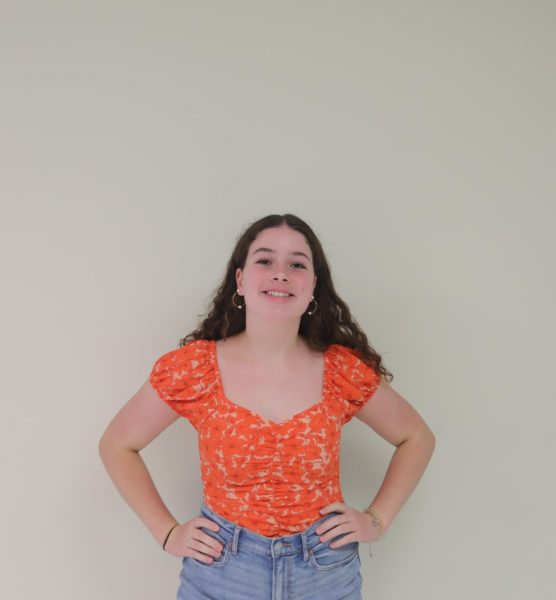PCP: The Age of Screenagers
May 17, 2023
The social media curse by Cooper Anderson
I am one of the unlucky people in the world who does not remember a time without social media. Being born in 2005, just two short years before the very first Apple iPhone was released, smart technology and social media has always been an integral part of the society I know. I am able to recognize the fact that in this day and age, I could not function without social media.
But it’s not necessarily because I love it–it’s because social media is an addiction. This may sound far-fetched, but us Gen Z kids all know it is true.
I received my first iPhone at the mere age of 10. Sadly, some of the first apps I downloaded were social media apps such as Instagram and Snapchat. The creation of these apps started with pure intentions, which was to simply share moments of your life with your friends and loved ones, and to create the same connection online that exists in-person. As we know it, these intentions shifted into a culture of comparison and toxicity that has caused mental health and self-esteem to plummet, specifically within the teenage and young adult demographic. Lots of hours and days go wasted with our minds occupied with the anxious feeling that our lives are not nearly as cool as those portrayed on Instagram. While it’s true that we could just delete these apps, it is not as easy as it seems since it creates feelings of disconnection without them. When all of your friends or people your age are highly active on social media and use it as main forms of communication and connection, we feel like we need it to maintain relationships.
In a survey conducted by ExpressVPN where 1,500 Americans were asked questions regarding their mental health in relation to their social media usage, 83% reported an increase in anxiety, 81% reported an increase in loneliness, and 79% reported an increase in depression. As I reflect on being a young child with access to these apps, it makes me regret having that exposure to a fake reality that I have always strived to attain. I always wonder if I would feel less anxious, stressed, depressed, or lonely if I had grown up without social media, and how that would affect my mental health now as I am entering adulthood.
As high school started, the weight of social media became heavier and a burden that I wish never existed. Social media has always been powerful in the sense that it can make you feel so incredibly isolated, even within a virtual world where nothing is truly real.
This summer, a new social media app called BeReal was introduced, and the premise was that a random notification would pop up on your phone telling you it was time to “Be Real” and take a picture of yourself wherever you were in that exact moment. Of course I downloaded the app to see what all the hype was about, and to be completely honest it was very engaging and fun for the summer months, and was a great way to capture memories with my friends.
As time went on though, this seemingly toxicity free app did not remain perfect and innocent, as many people started to fake their pictures and not take them at the exact “Be Real” time, making their lives seem more interesting than they really were. This led to the same detrimental cycle of comparison and eventually started to flood my mind with negativity, leading me to believe that my life was not nearly interesting enough. I thought I was wasting my summer. I have since deleted the app, which taught me that knowing what others were doing all the time was worse for me, since it was not just about staying connected to my friends anymore. It felt like it was a weight off of my shoulders- it was the first time I had deleted a social media app completely self-motivated. I have not regretted it since.
It would be naive of me to not recognize how social media has also been a helpful tool for me, and actually has led to positive occurrences in my life. For example, I would not have met my college roommate if it was not for the Instagram page that connected us. There is truth in saying social media has given us opportunities we would never have had decades ago, but it happens to be one of those things where the costs outweigh the benefits.
The benefits of social media by Lillian Davis
Being high school students in 2023 means that we were born during the uprising of social media platforms, some of which we now use almost every single day–whether it’s sharing your favorite pictures on Instagram, scrolling on TikTok, or posting your daily BeReal.
Although social media can’t replace real life interactions, it can create connections in real and online life that otherwise might not happen. Not only were social media platforms created to share your life with friends, but it’s also a place to reconnect with old ones and meet new people.
Social media helped people stay connected throughout the pandemic as well and was the place to go when there was nowhere else to go. TikTok, for example, had a large increase in users during the pandemic as it created a distraction for teens in many ways. There were new dances to learn, daily vlogs to watch, and whipped coffee recipes to try.
The ability to see what my friends were up to when I couldn’t see them in person helped me stay connected with them throughout the pandemic, and it still does now. Being socially connected with others is proven to help ease stress, anxiety, and depression. With newer social media such as BeReal, you can see what your friends are up to even more frequently than compared to other platforms like Instagram, for example.
These platforms allow us to create online identities and build social networks that can provide valuable support for those who feel like they don’t fit in or feel excluded. It can provide a way of finding others that share similar interests to you.
Social media also changed the way news spreads across the country and the world. According to Survey Monkey, about 29% of teens in the U.S. get news from social media every day and another 23% of teens get their everyday news from YouTube. Personally, I get most of my celebrity news on TikTok as well as some serious news, too.
Another plus to social media is the education it can provide to all ages. When people all across the world share photos and videos, it creates opportunities to learn new things about different cultures, topics and things that you might’ve not known before.
Most of all, social media is a prominent form of entertainment for teens and adults. I find myself frequently spending more time watching TikTok than I do watching TV shows or movies. Sometimes it feels like too much work to sit down and watch a show for an hour when I can watch 10-15 short videos in less than five minutes. Not to mention, I love showing my friends and family funny TikToks I’ve seen recently.
Social media also created new ways of raising awareness on important issues. It allows our generation to have a voice in situations when we might not have one outside of social media. It gives us the opportunity to speak out against injustice or wrongdoing, as well as spread positivity and encouragement.
While social media is something older generations might not fully understand, it’s something ours can’t imagine life without. Learning to grow up and navigate through a life with social media is something that our parents can’t help us with. It’s something our generation is going to have to learn by ourselves. I think we all know there are some negatives and that we all have to continue to find our own balance with online life and how we use it.
The difficult thing with social media is that with every positive it brings, there’s a negative. It can be a great way to spread and get news while on the other hand, fake news is always circulating. It can be a good way to spend time but it can also waste time. It can be tough as well, when social media promotes unrealistic life standards. These online identities we create for ourselves, can be made out to be our favorite versions of ourselves. The person we share online might be completely different than the person we truly are.
Arguments can be made for either side of this debate but I think social media is just like anything else in life–there are positives and negatives but it’s what we make out of it that truly matters. Social media was designed to be an asset to life; it can be and should be, as long as we keep it that way.



















![Movie poster for '[Rec]" (2007).](https://www.lionnewspaper.com/wp-content/uploads/2023/04/rec-640x900.jpg)



